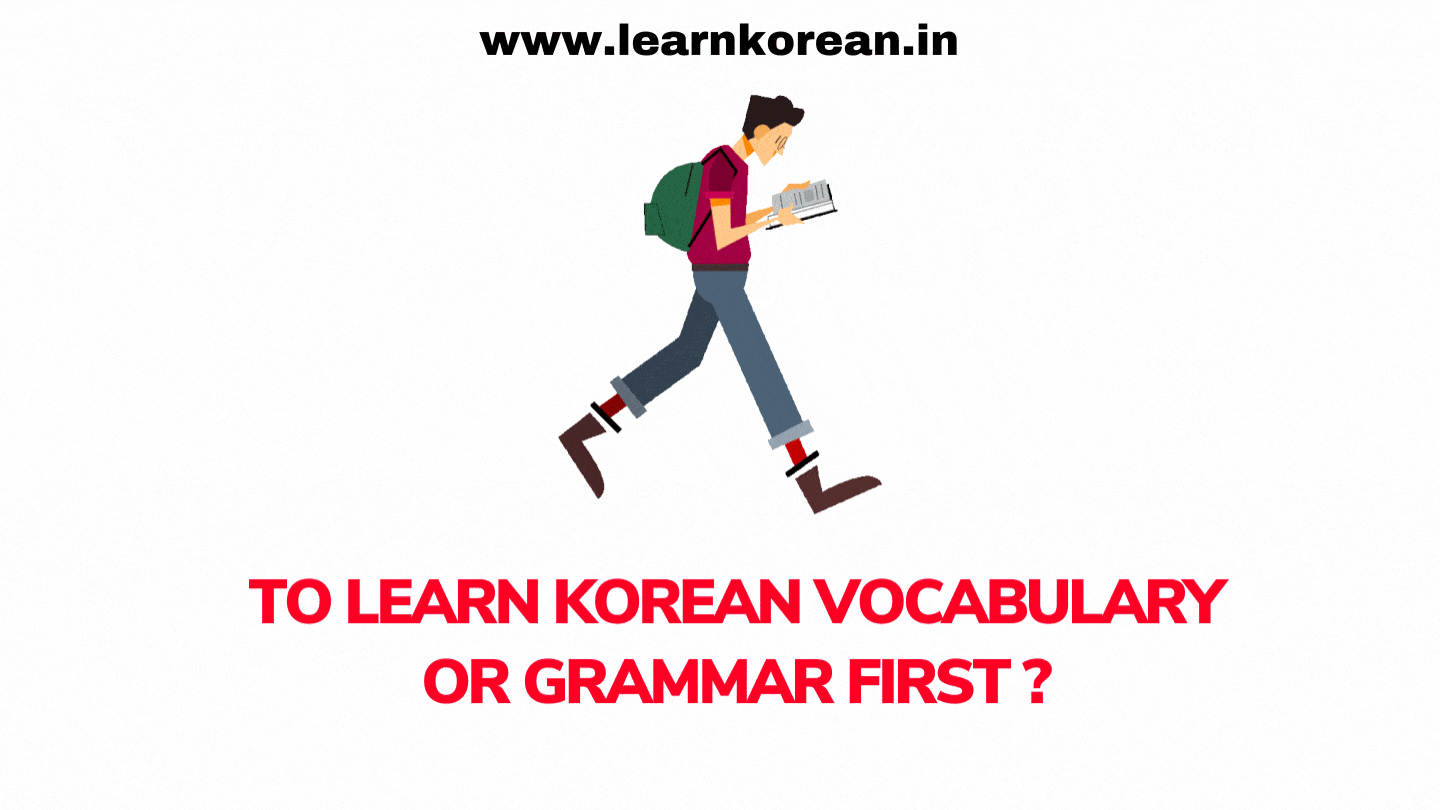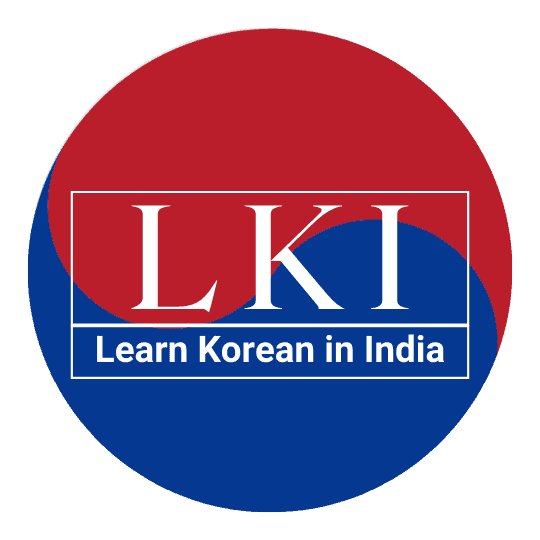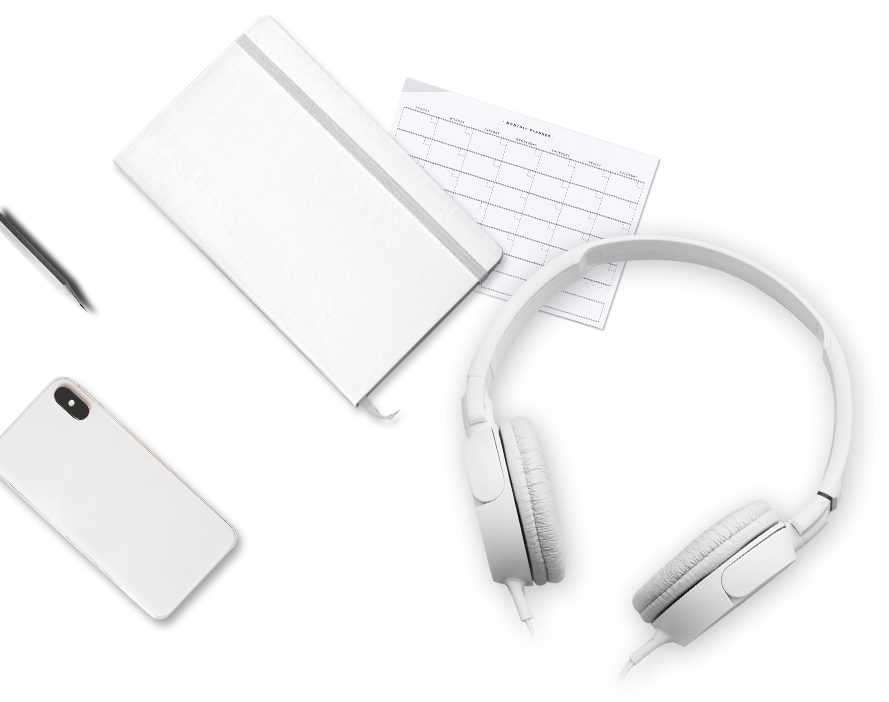If you are unable to wrap your head around whether to learn vocabulary or grammar first. I'm here to clear your doubt.
This has always been a debatable question in the language learning community. The answer of which is quite simple.
We are talking about efficiency where the quickest, most efficient and effective way to be able to speak Korean as soon as possible is what we are aiming for.

To break the bubble of yours, there's no quick way. Looking at how children acquire their mother tongue by mimicking WORDS not grammar.
The words form bits, pieces and fragments for how the sentence is to be formulated and conveyed.
In the beginners stage it will be a little hard to say what you should focus on more since building vocabulary and basic grammar is equally important. Mind the term “basic”. Simple rules to form sentences in all tenses.
The mind of a fully grown adult works in much efficient ways. We are able to handle the situation of comprehensible learning quite easily.
But the human brain relies on nothing but lots of input. What we can do better than a small child is consume more content and judge what works best for us and what not.
How many times in your life did you come across situations where you found yourself stuck with the word conjugations ? Fewer as compared to not being able to remember the words itself.
Vocabulary !! Vocabulary is the answer.
The inefficiency of not being able to frame comprehensible sentences shows when you reach an intermediate level of learning and regret on how much time you gave on learning the grammar and still can't hold basic conversation because of lack of vocabulary.
In my opinion the question on whether you should focus on vocabulary or grammar depends on what level you are at.
If I break it down in simpler terms.
Initial stage : Focus on BASIC vocabulary and grammar.
In the middle : Focus more on increasing vocabulary.
Latter stage : Focus on advanced level grammar which are covered in TOPIK II Level 3 & 4.
Learning basic vocabulary makes learning grammar easier and vice-versa.
Once you reach the upper intermediate level you'll come across more difficult and advanced level words that will help you in forming better and comprehensible sentences.
You might want to check these :
20 most common Korean drama phrases
Daebak !! 26 Korean words added to Oxford English dictionary
What I observed and came to know after all the years of continuous studying Korean is that the concept behind the term "문법 grammar" used in Korean is a bit different than how it is in English so grasping without enough exposure may take a lot of time and energy.
When talking about grammar from the English language concept it is about the system and structure of a language. The rules of grammar help us decide the order we put words in and which form of a word to use.
In Korean the 문법 is slightly different as it is basically the usage of certain elements to deliver certain meaning. The use of 문법 is on the basis on what you want to convey rather than the rule.
The placing doesn't affect the overall meaning of the sentence since there's each particle for different types of elements.
For example : 의 used with names showing possession , 에/에서 with place etc.
For example : the possible meaning of "to be" is to exist. In Korean the word would be 있다.
If you have to say "seems to exist" the equivalent 문법 in Korean would be “것 같아”.
So “seems to exist” would be “있는 것 같아”.
The “는” attached after “있다” could be considered as conjugation grammar rule as it has to be followed all the time but “것 같아” simply means "seems" in Korean.
Is “것 같아” a grammar rule ? Let me know your thoughts on this.
As for the other example :
“I will have only tea.”
“차 만 마실게요.”
Here you could see the usage of “만” which could mean only, alone, just, merely, as far as, at least, by etc.
You can see the difference in how several word usages in the Korean language are a little different from what is considered as "grammar structure" in English or other European languages.
So the moral of the story is to not pull your hair in order to get Korean grammar “문법” inside your head.
All you need is more immersion and lots of input and let your brain form a pattern of recognising it.
The way to improve further is by acquiring language through small comprehensible input with a slight increase in level than your current stage of understanding.
The sentence will be incomprehensible if you lack vocabulary but quite comprehensible if you lack grammar.
Coming back to the main topic of today. Focus on memorising Korean vocabulary more than anything. At first getting you head around Korean 문법 may sound very hard but you'll be able to understand the proper usage after listening to the sentences several times.
Also a very important tip: Keep Korean language at a hands distance from your native language especially English. The more quickly you realise how two languages work separately you'll be able to trick your mind into learning a new language of your own.
What are your thoughts on this ? Do you see any difference in the way Korean grammar rules are used in sentences ? How do you memorize vocabulary ? Share your tips and tricks !!
In the next blog I'll share about the ONE application heavily used in the language learning community to retain vocabulary. So stay tuned and look forward for the next week blog.
And as always share your experience of learning Korean language with us~
Thank you~
To understand how to read and write the Korean alphabet and join our online certificate course in order to fulfill your dream to work in Korea or appear for the TOPIK exam.
Please check these pages :
- Learn Korean Script Hangeul in 1 Hour
- Join our Level 1 online certificate course
- TOPIK - The complete guide
If you are going to appear for the TOPIK test or just need a boost in Korean language we would strongly advise you to join our online certificate course. One reason is that this course is developed and taught by people who are not only top level experts in Korean language but also are passionate about teaching Korean and helping learners like you achieve their dreams.
If you're new to Korean language we would advise you to buy our KOREAN LANGUAGE FOR INDIAN LEARNERS book available on Amazon and Flipkart. Also available on Kindle.
Thank you.

